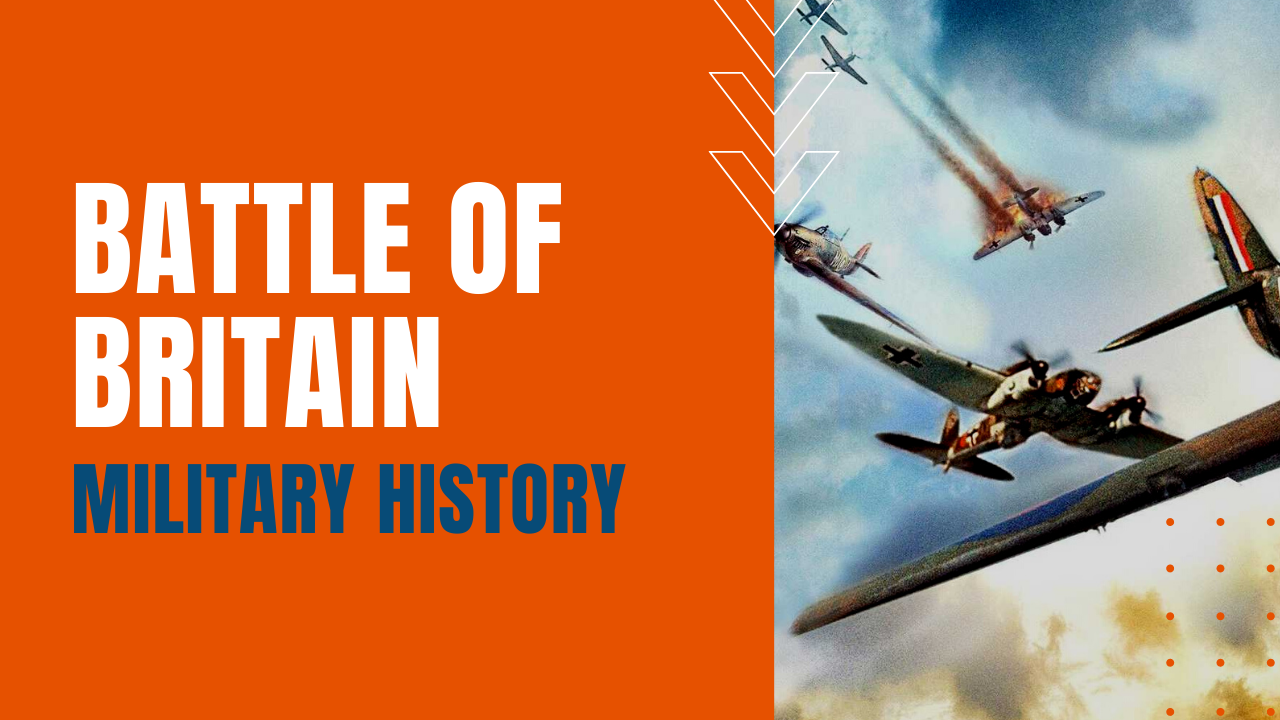Battle of Britain

After the Germans had rapidly overwhelmed France and the Low Countries of Europe, the Nazis set their sites on the overthrow of Great Britain. Heralded as the first major military campaign fought entirely by air forces, the Battle of Britain ignited on July 10th, 1940, before terrorizing the British for the next nearly four months to come.
Who Fought The Battle of Britain?
Fought between the German Luftwaffe, the British Royal Air Force and the British Navy’s Fleet Air Army, Hitler’s primary objective for the campaign was to compel Britain to agree to a negotiated peace settlement.
Targeting coastal shipping convoys, ports and shipping centers such as Portsmouth, on August 1st, the Luftwaffe was directed to achieve air superiority over the RAF, with the aim of incapacitating the RAF Fighter Command.
Twelve days later, it shifted their attacks to RAF airfields and infrastructure, which included the attempted destruction of British aircraft production facilities. After both German objectives failed, the Nazis shifted their focus to terror bombing raid over British cities, hoping that the resultant public outcry and political pressure would force politicians to capitulate.
Operation Sea Lion Foiled
On July 16th, 1940, Hitler ordered that preparations be made for Operation Sea Lion, which was the planned amphibious and airborne assault on Britain.
In September, however, the RAF Bomber Command disrupted the Nazi’s invasion plans during a series of punishing night raids on a flotilla of converted barges being outfitted for the coastal invasion of Great Britain. Combined with the Luftwaffe’s failure to gain air superiority over the Brits, Hitler abruptly cancelled all plans for Operation Sea Lion.
Historian Stephen Bungay cited Germany’s failure to destroy Britain’s air defenses as the first major German defeat in World War Two, while injecting a crucial turning point in the conflict in Europe. The Battle of Britain takes its name from a speech given by Prime Minister Winston Churchill to the House of Commons on June 18th, 1940, when he said:
“When General Weygand called the ‘Battle of France’ over, I suspect that the Battle of Britain is about to begin.”
Casualties From The Battle of Britain
The Battle of Britain would see 1,964 airmen casualties for the British, while the Germans suffered casualties of 4,245 airmen.
14,286 British civilians were killed during the four-month running campaign, while an additional 20,325 British civilians were wounded. Despite these egregious losses, the victory in favor of Britain provided an enormous morale boost for the nation, emboldening their confidence that they could and would successful defend themselves from Nazi aggression.
